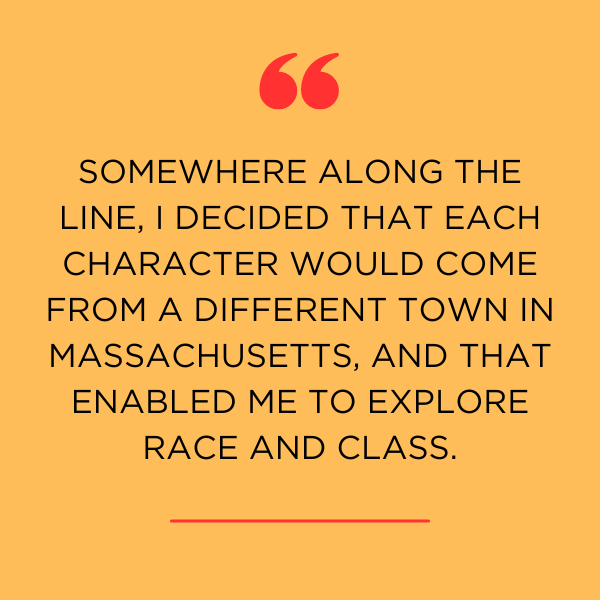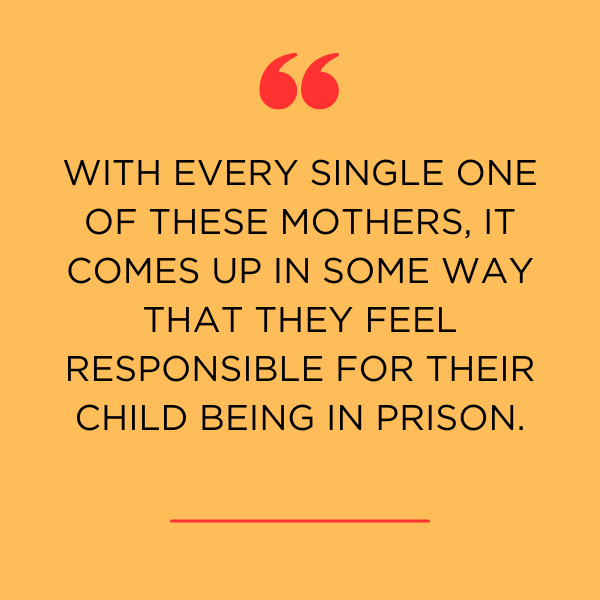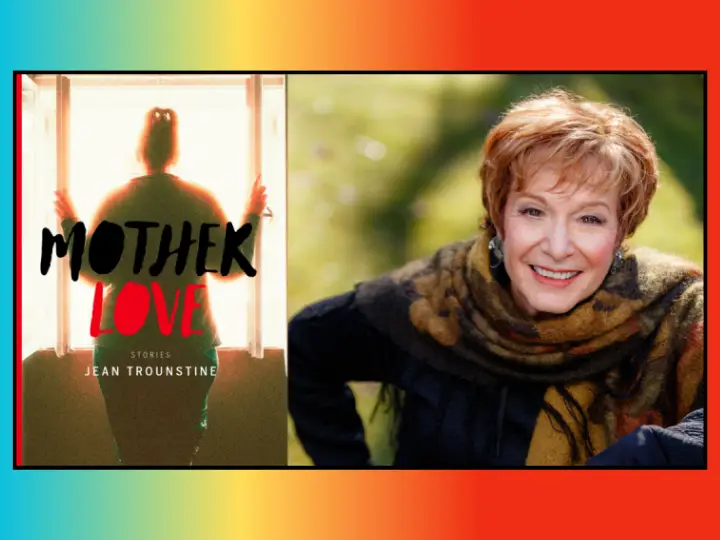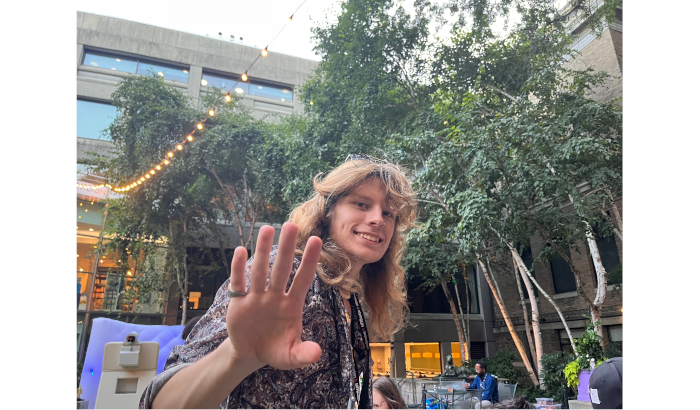Prison journalist and writer Jean Trounstine explores unspoken pain around incarceration with new collection of short stories
When it comes to writing about prison and parole, there are very few reporters who have as many sources among advocates or the incarcerated population as Jean Trounstine. I would know; as her editor at the Boston Institute for Nonprofit Journalism for the past several years, I have been floored by her ability to unearth major scoops on the strength of those connections.
Jean is also an accomplished educator, activist, and author who has directed stage plays and published multiple books touching carceral topics, among them Shakespeare Behind Bars: The Power of Drama in a Women’s Prison. So with those noted contacts and that much experience, it surprised me to learn that she chose fiction as her next vehicle for impugning the US prison system and its “devastating impact on our communities in Massachusetts and beyond.”
The resulting work is Motherlove, in which Jean compassionately considers an “often-forgotten group—the mothers of children who kill, each struggling with the aftermath of murder.” As she explains it, while fictional, each of the 10 characters is “drawn from her more than 30 years of experience with prisoners and their families.”
I recently (temporarily) stepped out of my role as Jean’s editor to interview her about this extremely powerful project and how it differs from—and complements—her extraordinary journalism on this front.
“It’s important to remember that I have no children,” she said. “I am not a mother, but I’m nurturing, I understand love, and I was possessed to write these women.”
What was the initial, original idea? Was it one story in particular that inspired this project?
People may not know this about me, but I worked in a prison for 10 years and I worked with women. So I have had the experience of understanding women who are in conflict with the law, and I have known people who have children behind bars. I have spent 30-plus years studying—or, as I call it, interrogating—the criminal legal system, and I know a lot about it and have that inside me. But with that said, I had only written nonfiction before this book, so what on earth possessed me to write fiction? And so here’s what it is …
The initial light bulb moment is that I went to a parole hearing that the story about [the Motherlove character] Maria is based on. … I was going to the hearings of all the juveniles who had first-degree murder sentences and were up for second-degree murder after [the decision Diatchenko v. District Attorney] happened in Massachusetts.
I went to all of them … in the middle of [one particular] hearing, a mother stood up and started talking to the mother across the aisle. When I say across the aisle, the way these parole hearings work is that they now have a guardrail down the center so on one side are the people who [are with the person] who is trying to get parole, and on the other side are the victims’ families.
So one mother stands up and starts talking to this other mother, and they start having this conversation in the middle of the hearing, and the Parole Board [members are] stunned into silence like I’ve never seen. They didn’t know what to do because there was literally a moment of restorative justice happening which they didn’t plan for. They didn’t know what was going on. I wrote about it on my blog, but it stayed in my head because I didn’t get to the feelings underneath it that were so profound for me, and what was so profound for me was the way the women communicated with each other. That led to me trying to imagine being a woman who was going to a parole hearing for her child.

How about the actual writing process? How did that begin?
The first [character and chapter] came rather easily, as I started to imagine her putting a hat on. I don’t think she really wore a hat to the parole hearing, the real woman, but with my character, that’s where I started fictionalizing. And I found that because I have a drama and theater background, and an MFA in acting from Brandeis, and I have the ability to imagine myself in different worlds, I think that my dramatic background helped me write this book.
It was also during COVID that I really wrote the book, and I really researched it and went to different places to determine what kind of house people lived in, what block they lived on, and so on.
There are a lot of proxies for things that you see on your reporting beat, but how did you go about making those experiences be the experiences of your characters as opposed to what you have personally been through as a journalist?
[The character] Ruth is based on a woman who I knew and loved who lived in Virginia and became a friend of mine, and with that story I could hear [the woman who inspired the character’s] voice. I knew her son, I knew where she lived, I knew so much about her. I made up the situation of the story, and I made up all of the fictional details, but sometimes I would just get an image. And I do this as a journalist too—I often don’t know where I’m going when I start writing. I write, as Joan Didion says, to find out what I’m thinking. I’m not an outliner—I just start writing and see where I go.
And that’s what happened with these stories—I just allowed my imagination to go where it went. Let me tell you how shocking it was to me to write a story where somebody becomes a nun. It wasn’t part of my plan, it just happened. [In real life], I had a great experience with Joseph Dever, a judge who I did [the innovative alternative sentencing program] Changing Lives Through Literature with for almost 25 years. He was Catholic, and I got involved with understanding a lot about what his family went through, and that came into my story.
Also, many women I have known founded organizations after they had a horrible thing happen to them—whether that’s having a child killed, or a child incarcerated. So that is not unusual. [Stacey Borden of New Beginnings] is a great example of that, [Tina Chery of Louis D. Brown Peace Institute], Susan Burton [of A New Way of Life in California], there are many.
How did you decide where these characters lived? For example, one of the backdrops is the Merrimack Valley, and specifically after the 2018 natural gas explosions?
Somewhere along the line, I decided that each character would come from a different town in Massachusetts, and that enabled me to explore race and class.
When the Merrimack Valley explosions happened, I live right near there, and I got involved in that—I went to Lawrence, I brought food, that was a very traumatic experience for the neighborhoods where I live. I based that woman on different Dominican women who I know, and as for [the Cambodian character in the book], I had a lot of access to that world from knowing Lowell intimately.
The people you speak with for your nonfiction work are typically pretty candid. But still, what are some things that you can do here that you don’t feel you can do or accomplish with your reporting? What are you able to communicate that maybe doesn’t always come out with journalism?
I’m able to imagine the personal life that I wouldn’t ask people about when I’m interviewing them [for a story about the carceral system]. If I’m interviewing a woman who I know has a son behind bars, I might ask her how she deals with the visitation, but I’m not going to ask her what it’s like when she gets home and has to make dinner for herself. She might tell me about phone calls they have or about going to the prison and how they make her change her shirt because it’s not appropriate. All of those things that have to do with the prison come out when you’re talking to people, but what doesn’t come out is the longstanding heartache and guilt. With every single one of these mothers, it comes up in some way that they feel responsible for their child being in prison. That wouldn’t come up [in a typical nonfiction piece]. If somebody volunteered that, you might pursue it, but most people don’t volunteer that because they’re trying so hard to survive it.
There is one woman whose son is incarcerated [in real life], and I asked her if she wanted to go on the radio with me. She said she just couldn’t [speak about her situation] in public. She’s very open with me in terms of what she was doing to try to get her son out of prison; I knew a lot about her efforts to do that, but we never talked about our personal feelings. It has to do with keeping those feelings close to the chest—it’s so hard to acknowledge the guilt.
Can you speak about the book’s criticism of journalism in this area? And how some of these initial cases and sentences that inspired parts of this book may have been reported on in ways that are not only often inaccurate but also compound the trauma endured by families?
I had originally written [Motherlove] with the idea that I would make up a news clip to put at the top of each story so people would see [how the subjects’ children wound up incarcerated]. And what the publisher did was put it as news on a smartphone; it’s more current, but the notion is still the same of showing how someone is represented in the news. I try not to represent people like that, but it’s how a lot of these people are represented in news articles.

There are countless issues and experiences that people in these situations have to deal with and which the rest of us don’t typically see—from interactions between people from different cultures behind the wall, to the waiting that goes on between consequential hearings, and so on. Did you have some kind of list of these little nuances that you wanted to include?
No, not at all. It just all came in the writing. When I finished, I did try to make a list of the issues I dealt with in the different stories, and I tried to make sure there weren’t things that were too similar between them. But I was conscious of wanting to explore different things, and I kept elaborate notes on each story about where the people lived and their relationships and backgrounds.
There is one story where a woman’s son is being blackmailed behind bars. That is a real thing I heard of happening, and somebody had to pay someone outside of the prison to clear up the blackmail. That’s a character in my book who comes from wealth; most of the women in the book are either middle class or poor, but this one character is a little above middle class I would say. That was interesting to me that that came to me, but did I have any idea where that story would go? No.
And then there are the current issues that come up—felony murder comes up several times, prison healthcare, and then there are stories ripped from the headlines involving gun violence, and of course, the big one, parole, which happens to be what you are writing a lot about these days. What was it like to write fiction about things you are watching unfold in real time?
I was driven more by character than by the stories. I was driven by what they would do, and because I have all of that knowledge of different things related to prison issues, they had to come in. I did have it in my mind that I wanted to have people in different stages—some who were behind bars for a long time, some who were just arrested, so the mothers were dealing with different kinds of trauma. And grief. And shock. And anger. And the issues just kind of came out of that.
How difficult was it with these stories to communicate a message of compassion for incarcerated people to the reader?
I think the big thing for me, and this is also true when I’m reporting on things, is that I try to suspend my judgment. I think a good writer creates empathy, and that means you have to understand how people could do what they do, even if that’s a horrendous thing to understand. It’s part of why I think I’ve always been able to write about people who have harmed other people.
When I wrote my book [Boy with a Knife] about Karter [Reed], that was one person, so that was nonfiction, and that took me 450 footnotes. One of the things about writing fiction is that I’m writing about 10 women, and I don’t have to have any footnotes.
Whether it’s fiction or nonfiction, though, I’ve always tried not to have good guys and bad guys.
Porter Square Books will welcome Jean Trounstine for the release of Motherlove on Thursday, March 28 at 7pm. Copies of Motherlove will be offered for free to attendees via Concord Free Press with a suggested charitable donation.






